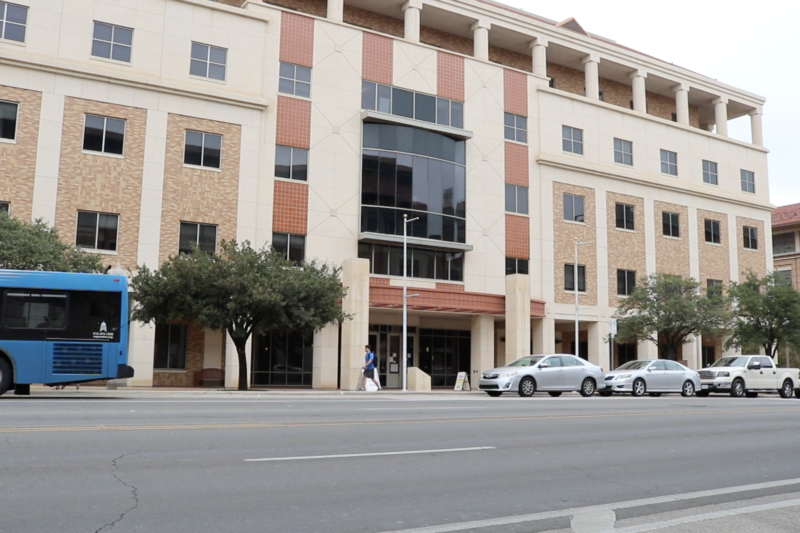UT Makes Additions to Counseling and Mental Health Services, Addresses Student Concerns
By Megan Fee
Reporting Texas TV
AUSTIN, Texas — The University of Texas at Austin’s Counseling and Mental Health Center (CMHC) is expanding its mental health resources through a partnership with My Student Support Program.
The partnership with the third-party vendor, announced earlier this month by Vice President of Student Affairs and Dean of Students Soncia Reagins-Lilly, offers students 24/7 real time chat and phone support, free counseling sessions, and access to an extensive digital content library of mental health and wellness resources.
“What we always aim for is to make mental health and well-being resources as accessible as possible,” said Chris Browson, Counseling and Mental Health Center Director and Associate Vice President for Student Affairs.
These services can be accessed by students in Austin, any state outside of Texas or in one of 200 different countries. Students can also request a counselor with a shared identity or who speaks one of over 150 languages.
The enhancements come as a follow-up to UT President Jay Hartzell’s announcement of preliminary additions to CMHC and the pilot program of the Mental Health and Assistance Response Team back in August.
Brownson said student use of CMHC has increased by about 10% every year for the past decade. He said the severity of students’ concerns have increased, especially those related to depression and anxiety.
“The most rewarding thing and the most challenging thing are two sides of the same coin,” Brownson said, referring to finding creative ways to meet the needs of a larger number of students each year.
Another mental health initiative from CMHC called the Peer Student Program will launch its pilot in the spring.
The program offers a more accessible alternative to traditional therapy.
Adrian Lancaster, the Peer Support Program coordinator, said UT students accepted by the program will receive mental health first aid training to facilitate mutually beneficial group discussions on a variety of topics.
“It removes the power imbalance that is inherent in a lot of other types of mental health relationships or interactions that can feel too clinical or too intimidating,” Lancaster said.
He said his goal for the program is two-fold: improve students’ mental health, and also teach students communication skills, empathy, active listening and to create inclusive and welcoming spaces.
“It’s not a replacement for therapy, but peer support is a place where students can connect on shared lived experience, and benefit from each other’s wisdom,” Lancaster said.
While all undergraduate and graduate students are encouraged to join the program once it launches, the program is especially valuable for students looking to gain experience in helping professions, like counseling and social work.
Lancaster said students who apply and are selected to the program will earn a semester of course credit through a facilitator training class, HED370K Foundations of Peer Support and Social Wellness.

The Counseling and Mental Health Center is located on UT Austin’s campus inside the Student Services Building at 100 W Dean Keaton St. (Photo: Megan Fee)
For students who turned to CMHC for help in the past like UT psychology senior Chad Youmans, these resources can make all the difference.
“When I first came to UT, I was probably the most depressed I had ever been in my entire life,” Youmans said.
“I felt all alone, I didn’t know anybody. Confidence was at an all time low…I was verging on the point of suicidal thoughts.”
Although he had heard from some students that CMHC was inadequate, Youmans sought help from the center, and described his experience with the counselors as “wonderful,” “safe” and “open.”
He went on to serve as an executive for the Student Mental Health Alliance, which exposed him to another side of CMHC.
Youmans points to lack of funding and misinformation surrounding counseling payment as causes for some students to turn away from the services.
“It really breaks my heart that there are so many people here at the university that need counseling and mental health resources, but that CMHC honestly doesn’t have the funding and power to provide,” he said.
He hopes students will develop a more clear understanding of what CMHC provides in the coming months.
Along with the expanded services, CMHC will continue using brief assessments as a first step to using their services, which include the following:
Single-session counseling and short-term individual counseling
Diversity counseling
Psychiatric services, groups and classes
The Mindful Eating Program
Alcohol and drug counseling
Voices Against Violence
Community referrals
Crisis services will continue to be offered by CMHC 24/7 and can be accessed by calling 512-471-CALL (2255) or visiting CMHC Monday-Friday from 8 a.m. to 5 p.m.
Students can call 512-472-CALL to access Counselors in Academic Residence, which will continue to be available through colleges and schools.